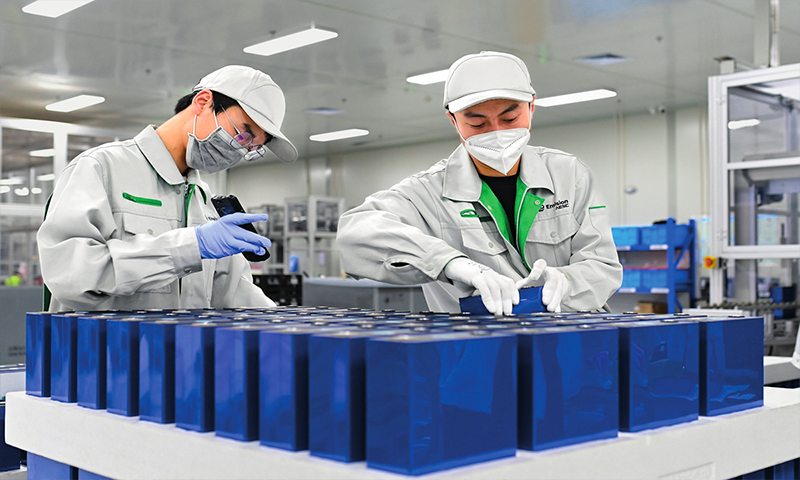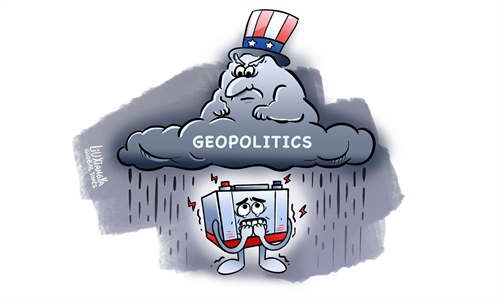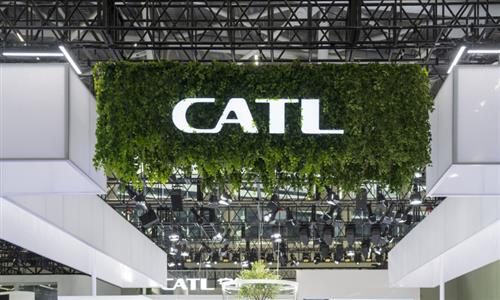US limits on Chinese vehicle firms', battery parts makers’ access to tax credits discriminatory: MOFCOM

Staff members operate on a 10.5 GWh power battery production line at a local industry park in Ordos, North China's Inner Mongolia Autonomous Region on January 15, 2023. Photo:VCG
US limits on Chinese firms' and battery parts makers' access to US electric vehicle (EV) tax credits discriminate against Chinese companies and violate WTO rules, the Chinese Ministry of Commerce (MOFCOM) announced on Thursday.
China's EVs and parts are welcome in the global market, and excluding Chinese firms from the tax credits of the US Inflation Reduction Act (IRA) of 2022 is a typical non-market-oriented policy and practice, He Yadong, MOFCOM spokesperson, told a press briefing on Thursday.
The discriminatory subsidy policy violates the basic principles of the WTO, seriously disrupts international trade and investment, and undermines the stability of global industry and supply chains, He said.
The spokesperson noted that a number of WTO members, including China, have expressed grave concerns over the policy in the WTO Council for Trade in Goods and on other occasions.
The EV sector is a technology-led industry, and sufficient competition is the key to technological progress. The US has set up artificial trade barriers to impede fair competition, which is detrimental to the development of the EV industry, He said.
On December 1, the US Treasury detailed terms under which an EV will not gain a so-called credit under the IRA if it or related components are made by a foreign entity of concern.
The US should respect market principles, strictly abide by WTO rules, and correct the wrong practices of discriminatory subsidies to create a fair, just and non-discriminatory business environment. China will continue to assess the implementation of US policies and take necessary measures to safeguard its legitimate rights and interests, He added.
US limits on Chinese firms for tax credits violate the WTO principles of promoting fair trade and national treatment. Providing subsidies to an industry should be fair to all investors, and the exclusion of Chinese content is discriminatory treatment, Sang Baichuan, dean of the Institute of International Economy at the University of International Business and Economics in Beijing, told the Global Times on Thursday.
China now produces about two-thirds of global battery cells, and it leads global processing of minerals for EV batteries, according to Energy Technology Perspectives 2023 published by International Energy Agency.
If the administration had banned all minor Chinese parts from the supply chain, no car models might have qualified for tax credits next year, John Bozzella, the chief executive of Alliance for Automotive Innovation, wrote in his blog.
The discriminatory US policies against Chinese companies will deter Chinese companies from investing in the US. As a WTO member, China can utilize the WTO dispute settlement mechanism to propose countermeasures, Sang said.
As an important global EV producer, Chinese companies are cooperating with US EV companies in many ways. In the first 11 months of 2023, the Tesla Gigafactory Shanghai delivered over 854,000 vehicles, according to the China Passenger Car Association.


